Exploring sustainable volunteerism through the SSIR monthly colloquium
Redefining the meaning of 해외 실시간 토토사이트 through deliberation
“Not a duty for special occasions, but a choice in everyday life”
The SSIR (Stanford Social Innovation Review) Monthly Colloquium was held on June 2 at the HEAT Room on the 6th floor of the Administration Building of Hanyang University. The event shared a wide array of ideas on sustainable volunteerism beyond traditional 해외 실시간 토토사이트 models. It featured three keynote lectures and a session of group deliberation among participants.
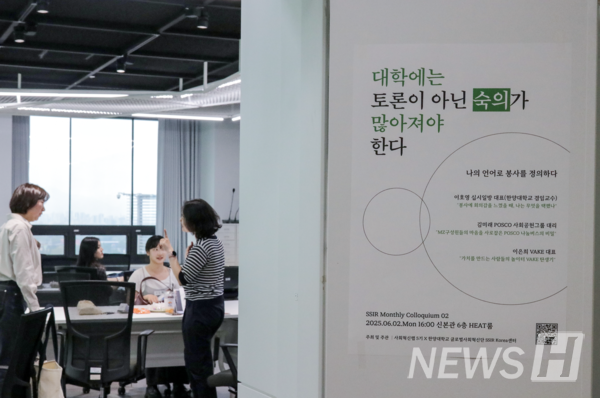
The colloquium as a laboratory
The event was part of a monthly series jointly planned by the SSIR Korea Center of the Global Social Innovation Foundation and the fifth cohort of the Social Innovation Lab at the Business Lab of the School of Business. Kim Hyun-joong, an editor for the Korean edition of SSIR and member of the Global Social Innovation Team, remarked, “SSIR aims to become a laboratory for shifting mindsets through new knowledge.” He added, “This colloquium was a process of rethinking the volunteerism we’ve long taken for granted and sharing its meaning through a deliberative lens.”
Sipsiilbap: community through a shared meal
Sipsiilbap is a student-led meal-sharing platform that originated at Hanyang University. Participants in the program have continued to explore ways to structure the initiative for long-term sustainability rather than temporary acts of goodwill.
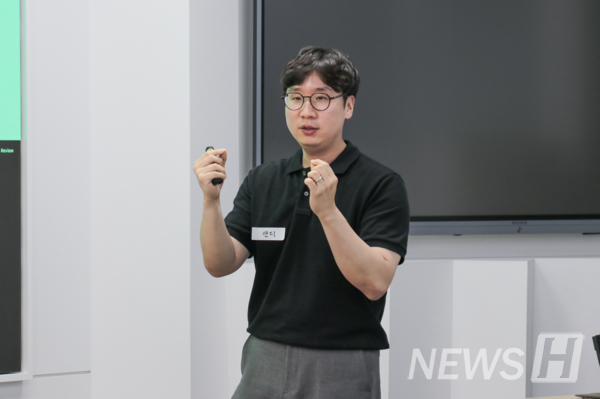
Sipsiilbap allows students to work part-time in school cafeterias preparing and serving meals, with their compensation used to provide free meals to others. Co-founder Lee Ho-young explained, “Sipsiilbap organically integrates volunteerism, economic value, and university community into one model,” and added, “It’s not based on one-sided sacrifice, but on fair contributions from all involved.” He emphasized a community-driven view of service, where all members are interlinked and reciprocally engaged.
POSCO: a sharing bus woven into organizational culture
POSCO has been exploring new forms of service involving younger generations. Kim Mirae from POSCO’s Social Contribution Group shared insights into the company’s approach: “We sought a balance between preserving corporate values like voluntary participation and addressing the needs of MZ-generation employees,” she said, referring to the launch of the “New Employee Sharing Bus” program.
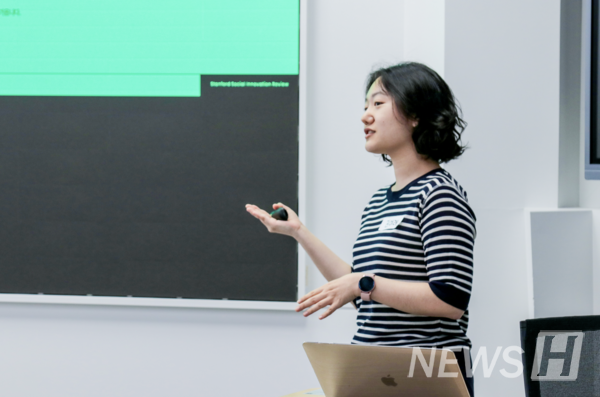
The program allows new employees to engage in various local volunteer activities. “It’s designed to be fun and experiential, moving away from classroom-based learning,” she said. “Such experiences serve as a springboard for continued participation.”
A distinctive feature is the random assignment of activities, allowing participants to try new tasks without preconceived notions. Kim added, “Through thoughtful design, we wanted to show that volunteerism can naturally become part of everyday life.”
VAKE: from supporters to changemakers
VAKE began as a design thinking workshop within World Vision. It aimed to go beyond the traditional message of “just donate” by involving people directly in defining problems and taking action. CEO Lee Eun-hee stated, “We wanted to see people not just as donors or volunteers, but as changemakers.”
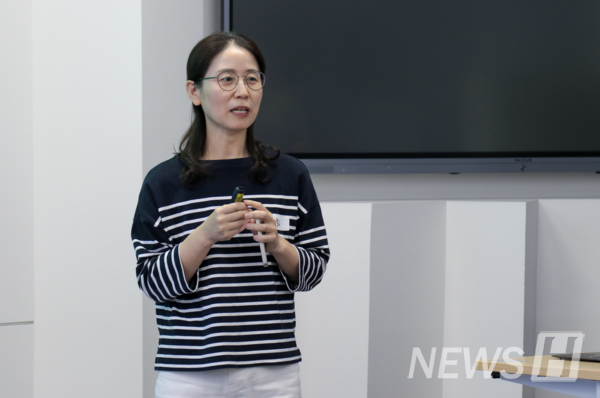
“We focused on why people donate and what they want to experience in the process,” Lee explained. “As volunteerism shifts toward direct involvement, we offer experiences where people become ‘bakers’—proactive agents of change.” One of VAKE’s initiatives, a stray cat care project in Seongsu-dong, began with three people and has grown to over 160 participants. Another community initiative on eating disorders has become a forum for shared reading and dialogue among affected individuals.
VAKE’s strength lies in the belief that “small participation is still valuable.” Lee said, “Even a group of five can spark meaningful action. We want to continue transforming hollow volunteer experiences into collective journeys of growth.”
Through deliberation
Following the lectures, participants engaged in a deliberative session to share their thoughts and reflect on their values around service. Lim Mi-jung (4th year, Department of Media & Communication) commented, “I used to see service only as sacrifice or goodwill, but today I gained new perspectives such as self-fulfillment and autonomy. The ideas that broke from traditional molds of volunteerism were impressive.” Kang Eun-hye from the Global Social Innovation Team added, “The colloquium helped me refine my thoughts on the role I can play in society, and reflect on how the university can align with students’ evolving views on service.”
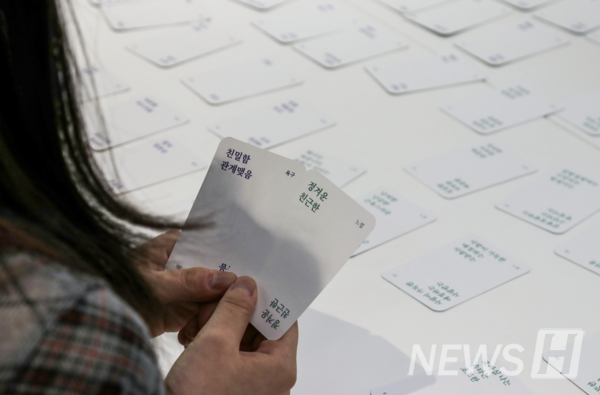
At this colloquium, “deliberation” was not about finding a right answer—it was a meaningful act in itself, built on open sharing of perspectives. Through sustained inquiry into sustainable service, the event helped illuminate new paths for more impactful engagement.

 '한양위키' 키워드 보기
'한양위키' 키워드 보기